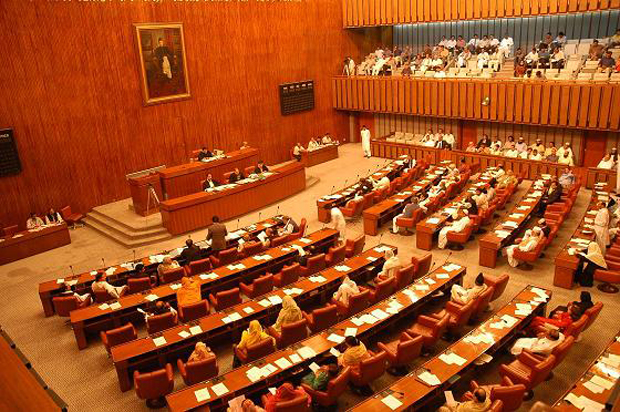ISLAMABAD: Members of Senate Standing Committee on Commerce Wednesday showed their concerns that the Ministry of Commerce has not consulted relevant stakeholders before negotiating free trade agreements. They noted that usually the heads or representatives of chambers of commerce and associations are consulted by the ministry, despite the fact that these trade bodies are extremely politicised.
However, Commerce Secretary Younus Dagha claimed that the ministry had no option but to consult the trade bodies, as they were the only representative organisations from the business community. He said after realising the misrepresentation by these associations, the ministry has decided to organize seminars for the FTAs where anyone from the business community can give his/her input.
Senator Dilawar Khan and Senator Nauman Khattak informed that several complaints have been received by them from the local industries against FTAs. “You do not talk to the right people,” Senator Dilawar Khan said.
The committee discussed the concerns of employees from the National Insurance CompaLimitedted (NICL), and it was informed that a new board was being constituted and the summary has been forwarded to the prime minister for approval.
The members of the committee also noted that trade policy of the country was repeatedly failing to materialise only because it lacked collective approach involving all the departments.
“The problem is that trade policy is like a dream but who will materialise this wish list – industries, tariffs, customs etc while we do not even have an industrial policy,” chairman of the committee Senator Shibli Faraz said.
He added that even the performance of various departments falling under the Commerce ministry has been depressing. “The commerce ministry should identify the flaws and reasons that have been leading to or could lead to the failure of our trade policy,” Senator Shibli Faraz added, “There should be detailed reasons to identify the cause of rising imports and declining exports.”
Commerce Minister Pervaiz Malik said that one key issue in Pakistan was a high cost of production which was discouraging exports and leading to imports. He even said that the price of imported wheat and sugar would be less than that of locally produced wheat and sugar.
“But it is a very complicated matter to discuss the reason of high cost either in the industrial sector or for the agri-produce,” he added.
The committee was informed by Textiles Secretary Hassan Akhtar that while Pakistan was among the very countries of the world where complete chain of cotton has been established, but the situation was not encouraging.
“Pakistan was the fourth largest cotton producer of the world, but the standing of Pakistan in garments and finished products was 20th among 140 countries,” he said.
The committee discussed concerns of various sectors against free trade agreements signed by Pakistan.




